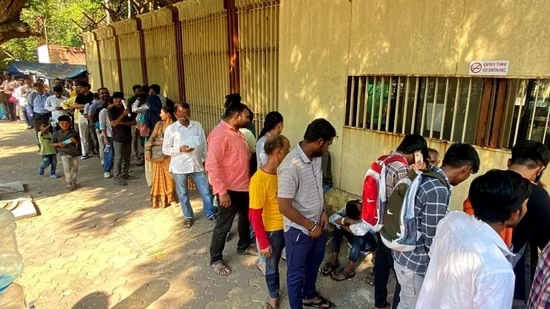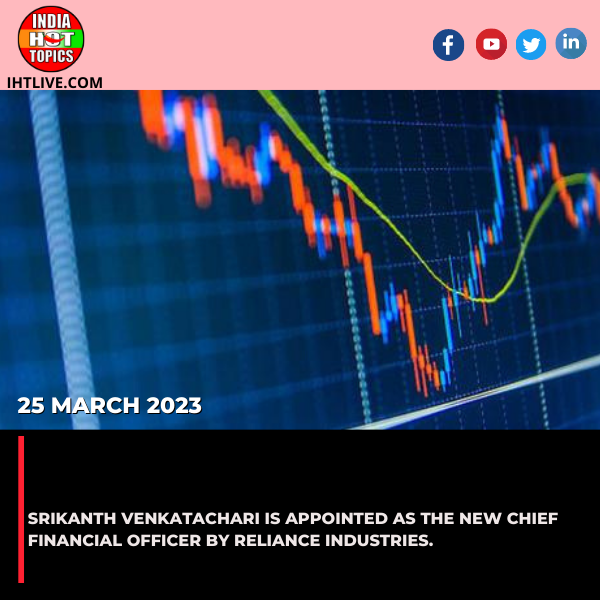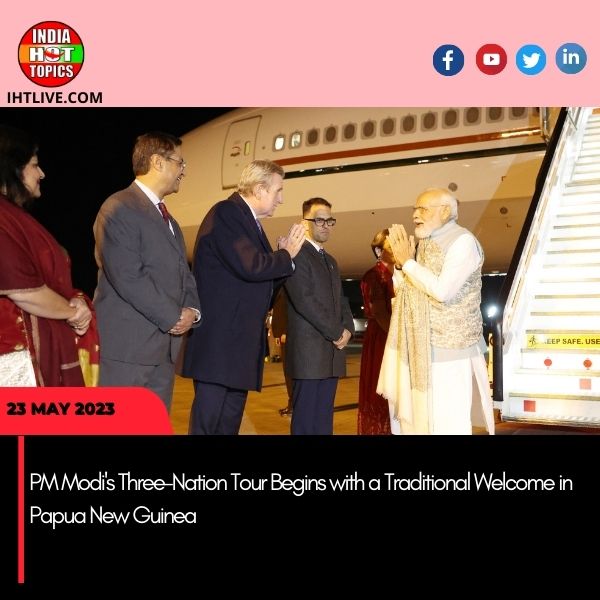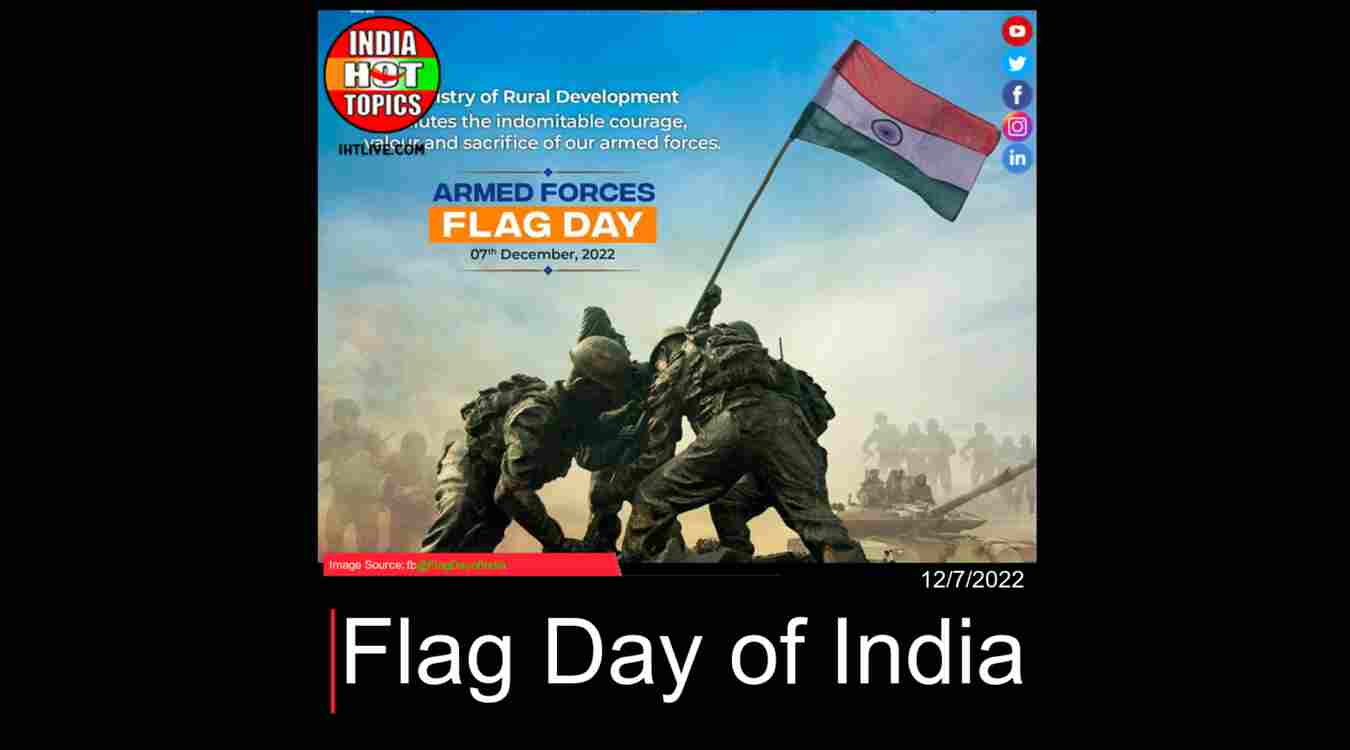India
Amit Shah examines the security situation in states affected by naxalism.
.jpg)
India’s fight against Naxalism, a long-standing internal security challenge, has seen significant developments recently. Amit Shah, India’s Home Minister, has taken a proactive and assertive step by personally examining the security situation in states affected by Naxalism. This strategic move signifies the government’s unwavering commitment to address this persistent issue effectively. In this blog, we will explore the significance of Amit Shah’s assessment and its potential impact on countering Naxalism in India.
Understanding the Naxalism Challenge
Naxalism, also known as Left-Wing Extremism (LWE), is a complex security threat primarily prevalent in India’s central and eastern regions, often referred to as the “Red Corridor.” The Naxalite movement traces its roots to leftist ideologies and seeks to challenge the authority of the Indian state. Over the years, it has posed significant challenges to law enforcement agencies and governance in affected areas.
Amit Shah’s Thorough Assessment
Home Minister Amit Shah’s decision to personally assess the security situation in Naxal-affected states is a remarkable and strategic move. It underscores the government’s determination to confront the issue head-on. Shah engaged in discussions with top security officials, state government representatives, and intelligence agencies to gain comprehensive insights and formulate a holistic strategy.
Key Objectives of the Assessment:
Identifying Weaknesses: The assessment aims to identify vulnerabilities and shortcomings in the current counter-Naxal strategy, spanning intelligence collection, law enforcement, and development initiatives.
Coordinated Efforts: Effective coordination among various stakeholders, including central and state agencies, is pivotal in combating Naxalism. The assessment seeks to promote enhanced inter-agency collaboration.
Amplified Security Measures: Based on the assessment findings, it is likely that additional security measures will be deployed in Naxal-affected regions, bolstering law enforcement capabilities.
Targeted Development Initiatives: In conjunction with security measures, development programs are crucial to address the root causes of Naxalism. The assessment may lead to more precise and impactful development initiatives.
Community Engagement: Involving local communities in counter-Naxal efforts is essential. The assessment may explore strategies to empower and engage communities residing in Naxal-affected areas.
Amit Shah’s Vigilant Stance: Assessing Security in Naxal-Affected States
Amit Shah’s assessment holds the potential for several significant impacts:
Enhanced Security: A deeper understanding of the situation is likely to result in more effective security measures and counter-insurgency operations.
Strategic Development: The assessment can guide the government in strategically allocating resources for development initiatives, thereby reducing the appeal of Naxalism among marginalized communities.
Improved Coordination: Strengthened coordination among security forces, intelligence agencies, and state governments will lead to more cohesive and concerted counter-Naxal efforts.
Demonstrated Resolve: The assessment underscores the government’s unwavering determination to address the Naxalism issue comprehensively, sending a resolute message to insurgents.
Amit Shah’s comprehensive assessment of the security situation in Naxal-affected states underscores the government’s commitment to confronting this long-standing challenge. By identifying vulnerabilities, enhancing security measures, promoting development initiatives, and engaging local communities, India aims to eliminate the menace of Naxalism and pave the way for greater peace and stability in affected regions. As these efforts unfold, it is essential to maintain a balanced approach that combines robust security measures with targeted socio-economic development to effectively address the root causes of the issue. Amit Shah’s vigilant stance sends a clear message that Naxalism will not be tolerated, and India is committed to restoring security and prosperity in these areas.
General News Platform – https://ihtlive.com/
Entertainment News Platforms – anyflix.in
Construction Infrastructure and Mining News Platform – https://cimreviews.com/
Podcast Platforms – https://anyfm.i
India
Covid 19 India Cases Live Updates: Active cases rise to nearly 5,000, 7 deaths reported in 24 hours
.jpg)
State-wise Breakdown
Kerala remains the most affected state, with 1,487 active cases. Delhi and Maharashtra follow, reporting 562 and 526 active cases respectively . Other states such as Gujarat, Karnataka, West Bengal, Tamil Nadu, and Uttar Pradesh have also seen noticeable increases in active cases.
Emerging Variants and Diagnostic Challenges
The resurgence is partly attributed to new variants, notably NB.1.8.1, which exhibit higher transmissibility. These variants often present with milder symptoms resembling common colds or flu, such as low-grade fever, fatigue, and cough. This similarity complicates timely diagnosis and may lead to underreporting .
Government Response and Public Health Measures
In response to the uptick in cases, health authorities have conducted review meetings and directed states to ensure readiness with essential supplies. The public is urged to maintain hygiene and seek medical attention if experiencing respiratory symptoms as the ministry closely monitors the situation .
Public Advisory
Health experts advise the public to remain vigilant. Individuals experiencing symptoms such as fever, cough, or fatigue should seek medical advice promptly. High-risk groups, including the elderly and those with underlying health conditions, are particularly encouraged to take preventive measures.
India is once again witnessing a slow but worrying uptick in COVID-19 cases, prompting health experts and officials to revisit pandemic protocols that had largely faded from public memory. As per the latest data released by the Ministry of Health and Family Welfare, the number of active COVID-19 cases in the country has climbed to approximately 4,866, marking a noticeable increase over the past few days. In the preceding 24-hour period alone, India reported 564 new cases and seven deaths attributed to COVID-related complications.
Among the deceased is a five-month-old infant, serving as a grim reminder that the virus remains dangerous across all age groups. While this resurgence is nowhere near the peak levels seen during the Delta or Omicron waves, the rapid climb from under 2,000 active cases just weeks ago has raised concerns about a potential localized outbreak or seasonal spread. Kerala, which has historically experienced higher caseloads during previous waves, currently tops the chart with nearly 1,487 active cases.
Delhi follows with 562 cases, and Maharashtra stands close behind at 526, indicating that urban and densely populated regions continue to be hotspots. Other states such as Tamil Nadu, Karnataka, West Bengal, Gujarat, and Uttar Pradesh are also reporting a steady rise in daily case counts, although they remain under the 500 mark.
What adds complexity to the current situation is the emergence of new sub-variants, notably NB.1.8.1, which appear to be driving the present surge. Unlike earlier strains, this sub-variant is said to spread faster but often manifests in symptoms that mimic those of seasonal flu — such as low-grade fever, dry cough, fatigue, and occasional sore throat — making detection difficult without targeted testing.
In many cases, infected individuals initially assume they are suffering from the common cold or seasonal allergies and delay seeking medical care, increasing the risk of community transmission. Doctors across hospitals in metro cities have reported that several patients only test positive for COVID after secondary or tertiary symptoms emerge, often resulting in a lag in treatment and isolation measures.
This diagnostic challenge is also contributing to underreporting, as people shy away from testing unless symptoms become severe. Experts warn that such complacency could lead to undetected clusters and recommend that anyone experiencing prolonged flu-like symptoms undergo testing, particularly those with underlying health conditions or weakened immunity.
In response to the rising case numbers, the Indian government has begun taking precautionary steps. Union Health Minister-led review meetings have been conducted to assess state-level preparedness.
Hospitals have been instructed to stock up on essential supplies, including PPE kits, oxygen cylinders, antiviral medication, and to ensure that ICU beds and isolation wards are functional. States have been directed to revive COVID war rooms and surveillance systems temporarily, especially in high-risk zones and transportation hubs.
District health officials in Kerala and Maharashtra have already reinstated mobile testing vans in public places like railway stations, airports, and markets to ensure early identification of potential cases.
However, authorities are treading a careful line, avoiding full-blown restrictions to prevent public panic or economic disruption, and instead focusing on enhanced monitoring and communication.
Public health advisories have also been updated. Citizens are encouraged to practice respiratory hygiene, such as wearing masks in crowded indoor spaces, regularly sanitizing hands, and maintaining physical distancing wherever feasible.
Those experiencing flu-like symptoms are advised to avoid public gatherings and seek medical consultation at the earliest. Booster vaccinations, although no longer mandatory, are being strongly recommended for vulnerable populations — including senior citizens, people with comorbidities, and frontline workers. While vaccination rates in India remain high, especially in urban centres, health authorities are now encouraging states to initiate local awareness drives to encourage booster uptake, particularly in semi-urban and rural regions.
Recent genome sequencing reports suggest that while the current strain does not lead to severe hospitalization in most healthy individuals, patients with coexisting illnesses — such as diabetes, respiratory diseases, or cardiac conditions — may face higher risks, necessitating timely intervention.
Educational institutions and offices have been advised to remain alert and monitor the health of students and staff. So far, no decisions have been made regarding closures or reverting to remote operations. However, many IT companies have begun recommending hybrid work setups once again, especially for employees showing even mild symptoms of illness.
In schools and colleges, periodic screening and health monitoring initiatives have been reintroduced. Several private hospitals in Bengaluru, Chennai, and Mumbai have reported a modest increase in the number of walk-in patients requesting COVID tests over the past week — a sign that public awareness is gradually rising. However, experts caution that proactive measures must continue if the country is to avoid a repeat of past surges.
Adding to the complexity is the simultaneous occurrence of seasonal flu outbreaks in several parts of the country, particularly in North India, where weather fluctuations are common during this time of year. Many doctors are finding it difficult to distinguish between influenza and COVID-19 without proper diagnostic tests, further burdening healthcare infrastructure.
Although hospitalizations remain relatively low, the medical community is urging people not to take the current wave lightly. They emphasize that a small percentage of infections can still evolve into serious respiratory complications requiring hospital admission, especially if diagnosis or treatment is delayed.
Public sentiment, meanwhile, remains mixed. After enduring multiple lockdowns and disruptions since 2020, many citizens are understandably fatigued by the reappearance of COVID-related headlines. While some have returned to mask-wearing and hand hygiene habits, others continue to treat the situation casually, attributing symptoms to routine flu or dust allergies. This divide poses a challenge for public health messaging, which needs to strike a balance between awareness and alarm. Social media platforms are also being monitored to curb the spread of misinformation and fake remedies that tend to gain traction during health emergencies.
In conclusion, while the number of active COVID-19 cases in India remains well below critical thresholds, the recent spike underscores the virus’s continued presence and adaptability. The emergence of new variants, combined with milder symptoms and reduced public vigilance, creates a fertile ground for future flare-ups.
Government agencies, healthcare professionals, and citizens must now work together to ensure that India’s hard-earned progress in pandemic management is not undermined by complacency. With schools open, festivals around the corner, and increased travel across the country, it is imperative that basic precautions be maintained. Timely diagnosis, voluntary isolation, mask usage, and booster vaccination are simple yet powerful tools that can help India prevent another wave from escalating into a crisis.
- Group Media Publication
- Construction, Infrastructure and Mining
- General News Platforms – IHTLive.com
- Entertainment News Platforms – https://anyflix.in/
India
‘India hosts G20, Pakistan hosts T20’: Sena (UBT) MP Priyanka Chaturvedi’s ‘top terrorists’ swipe at Islamabad
.jpg)
Shiv Sena (UBT) MP Priyanka Chaturvedi recently made a pointed remark contrasting India’s global leadership with Pakistan’s alleged support for terrorism. Speaking to the Indian diaspora in London, she stated, “While we host the G20, they host the T20—the top 20 terrorists of the world,” implying that Pakistan provides shelter to some of the most wanted terrorists globally.
She further criticized Pakistan’s duplicity, saying it “shakes hands with you and then bites you on your back,” referencing the discovery of Osama bin Laden in Pakistan despite its alliance with the U.S.
Chaturvedi also drew a parallel between India’s pursuit of Free Trade Agreements and Pakistan’s alleged “Free Terrorism Arrangement,” highlighting the stark differences in their international engagements. Her comments were part of a broader effort by an Indian parliamentary delegation to expose Pakistan’s purported state-sponsored terrorism on the global stage.
This rhetoric aligns with previous statements by Indian leaders. For instance, during the G20 Summit in 2017, Prime Minister Narendra Modi emphasized that “some nations are using terrorism for achieving political goals,” equating Pakistan-based groups like Lashkar-e-Taiba and Jaish-e-Mohammed with global terror organizations such as ISIS and al-Qaeda.
India’s consistent stance has been to urge the international community to isolate and sanction nations that support terrorism, advocating for a unified global response to combat the menace effectively.
In a pointed and politically charged remark, Shiv Sena (UBT) MP Priyanka Chaturvedi recently stirred debate by contrasting India’s global leadership with Pakistan’s alleged harboring of terrorism. Speaking to members of the Indian diaspora in London, Chaturvedi quipped, “India hosts the G20, Pakistan hosts the T20—the top 20 terrorists of the world.” While wrapped in wit, the statement reflects a broader and long-standing diplomatic contention between India and Pakistan over the issue of cross-border terrorism.
India, under Prime Minister Narendra Modi’s leadership, has increasingly positioned itself as a global economic and strategic player. Its hosting of the G20 summit in 2023 was seen as a landmark moment, not only diplomatically but also symbolically. India showcased itself as the voice of the Global South, a nation committed to sustainable development, digital innovation, and multilateral cooperation.
In stark contrast, Chaturvedi’s barb underscores India’s frustration over Pakistan’s alleged inaction against terrorist networks operating within its borders—a concern that has been echoed in international forums.
The “T20” remark, while humorous in form, is a critique of the perception that Pakistan continues to serve as a safe haven for individuals and organizations involved in terrorism. For decades, New Delhi has maintained that Pakistan-based groups like Lashkar-e-Taiba, Jaish-e-Mohammed, and others have orchestrated attacks on Indian soil, including the 26/11 Mumbai attacks and the 2019 Pulwama bombing. Chaturvedi’s statement aligns with this narrative, essentially accusing Pakistan of continuing to shelter elements that threaten regional stability.
The international community has taken note of these allegations. Multiple global bodies, including the Financial Action Task Force (FATF), have placed Pakistan under scrutiny. Although Pakistan was removed from the FATF’s “grey list” in 2022 after making certain legislative and financial reforms, many believe that the underlying infrastructure of extremism still finds space in parts of the country. Indian leaders have consistently pointed to this as a security threat not just for India, but for the wider world.
What adds to the irony, and perhaps the bite, of Chaturvedi’s comment is the use of the “T20” term—normally associated with a popular format of international cricket.
Cricket is a shared passion between India and Pakistan and often serves as a tool of diplomacy and people-to-people contact. Yet here, the term is used to convey an ominous message, repurposed to signify terrorism rather than sport. It reflects how deeply entrenched the issue of terrorism has become in bilateral relations between the two neighbors, to the point that even cultural metaphors are drawn into the fray.
Her statement also speaks to the growing confidence of India’s political class in taking a firm, often vocal, stand on international platforms. Gone are the days when Indian leaders shied away from publicly naming Pakistan in global settings. Today, Indian representatives, whether at the United Nations, G20, or bilateral meetings, are direct in their language. Chaturvedi’s speech to the Indian diaspora fits into this larger strategic posture: vocal, assertive, and unapologetic.
Critics may argue that such rhetoric contributes little to actual diplomatic resolution and could exacerbate tensions. But supporters see it as a necessary counter-narrative to what they view as Pakistan’s continued denial of its role in sponsoring or turning a blind eye to terrorism. For the Indian diaspora—particularly in Western countries—such remarks often serve to rally support, both emotionally and politically, for India’s position on security and foreign policy matters.
Furthermore, Chaturvedi’s allusion to Osama bin Laden’s presence in Abbottabad, Pakistan, is a reminder of past controversies. The fact that the world’s most wanted terrorist was found living in a compound near a major military academy in Pakistan shocked global observers. That episode has become symbolic of the suspicions many hold regarding Pakistan’s internal contradictions—fighting terrorism in some quarters while allegedly enabling it in others.
Chaturvedi didn’t stop at the T20 analogy. She also drew a comparison between India’s pursuit of Free Trade Agreements (FTAs) and what she termed Pakistan’s “Free Terrorism Arrangement.” It’s a biting turn of phrase meant to emphasize the contrasting paths the two countries have taken on the global stage. While India negotiates trade deals and pushes economic growth, the insinuation is that Pakistan has allowed itself to become entangled in a network of extremist patronage and international suspicion.
These rhetorical flourishes are not made in a vacuum. They reflect a domestic political climate in India where national security remains a top priority. With general elections approaching, and with nationalistic sentiment often influencing electoral behavior, such statements serve both foreign and domestic policy objectives. They reinforce the narrative of a strong India standing up to global threats, and they appeal to voters who prioritize national integrity and security.
However, the use of such language also raises questions about diplomatic tone. While sharp rhetoric can capture headlines and galvanize public opinion, it may limit the space for back-channel diplomacy and peaceful negotiation. India and Pakistan, after all, remain nuclear-armed neighbors with a complex history. They share borders, cultural ties, and economic potential that are frequently overshadowed by their political disagreements.
Chaturvedi’s comments should also be viewed in light of increasing efforts by India to shape global perceptions. Indian diplomacy is now intertwined with strategic communication, where narratives are as important as negotiations. Terms like “Terroristan” and “T20 terrorists” are part of a larger toolkit of persuasive language aimed at influencing how the world sees South Asia’s security challenges.
It is also worth noting that such messaging often resonates with international audiences who have themselves been affected by terrorism. Countries in the West that have faced attacks on their soil may find a natural ally in India’s tough stance. Thus, Indian leaders—parliamentarians, diplomats, and ministers alike—are increasingly comfortable invoking sharp, memorable phrases to drive home their point.
In the end, Chaturvedi’s “G20 vs T20” statement is emblematic of a broader geopolitical reality. It highlights the competing narratives of two neighboring nations with vastly different global aspirations. India seeks to be a rule-maker in the global order, advocating for cooperation, innovation, and economic integration. Pakistan, on the other hand, finds itself battling persistent accusations of terrorism support, struggling to reshape its global image despite efforts at reform.
Whether such rhetoric will lead to constructive change remains to be seen. But one thing is clear: the verbal sparring between India and Pakistan is no longer limited to official statements. It now occupies global stages, diaspora gatherings, and international media, shaping public perception in ways that formal diplomacy often cannot. Chaturvedi’s comments are just one example of how political messaging, laced with satire and criticism, has become a powerful tool in the evolving India-Pakistan relationship.
- Group Media Publication
- Construction, Infrastructure and Mining
- General News Platforms – IHTLive.com
- Entertainment News Platforms – https://anyflix.in/
India
Shreyas Iyer plays an all-time great knock, PBKS set up final against RCB to ensure a new IPL champion

In a pulsating, high-octane clash that will be etched in IPL folklore for years to come, Shreyas Iyer produced an innings of a lifetime, a masterclass under pressure that not only salvaged his side from the brink but also powered them into their first-ever Indian Premier League final, where they will now face Royal Challengers Bangalore in a historic showdown that guarantees a brand-new champion. The Eden Gardens roared in collective disbelief and admiration as Iyer, the steely-eyed right-hander, unleashed a knock that defied the odds, silenced doubters, and revived his team’s fortunes in a match that looked lost at several junctures.
Chasing a daunting total set by Rajasthan Royals in Qualifier 2, the Punjab Kings were reeling at 45 for 4 when Iyer walked in, amid a flurry of wickets and a growing sense of inevitability. But the Delhi-born batter had other ideas. Combining surgical precision with fearless aggression, Iyer stitched together a majestic 112* off just 61 balls, blending classical strokeplay with inventive shot-making. His ability to pierce the gaps, manipulate field placements, and accelerate with grace underlined his evolution as a big-match player.
The pivotal moment came in the 16th over, when Iyer launched into seasoned pacer Trent Boult with back-to-back sixes and a scything cover drive that shifted the momentum irreversibly in Punjab’s favor. From there, the equation melted down under the sheer weight of Iyer’s calm, calculated assault. Supported briefly by Jitesh Sharma and a spirited cameo from Liam Livingstone, the innings was undeniably Iyer’s canvas, painted with strokes of resolve, maturity, and brilliance.
The PBKS dugout erupted as he sealed the victory with a towering six over long-on, punching the air as teammates swarmed the field, finally breaking their playoff jinx and marching into the final with renewed belief. It was a tale of redemption for Iyer too, who had faced criticism earlier in the season for inconsistency but timed his resurgence perfectly, rising when it mattered most. Meanwhile, Royal Challengers Bangalore, having dispatched tournament favorites Kolkata Knight Riders in Qualifier 1, wait eagerly at the other end of the draw for what will be their fourth final — and like PBKS, a potential maiden title.
With both teams historically known more for their heartbreaks than their hardware, the upcoming final is more than just a match; it’s a promise of new beginnings, a shot at legacy.
Fans across the country are bracing for a titanic clash of two squads brimming with talent and desperation in equal measure. For PBKS, the triumph in the semifinal is emblematic of their season — erratic yet exhilarating, chaotic but courageous.
Led ably by Sam Curran, whose tactical acumen and all-round contributions have been central to the team’s resurgence, Punjab have found late-season form that makes them a legitimate threat. Add to that the form of Jonny Bairstow, the X-factor of Livingstone, and a quietly effective bowling core anchored by Arshdeep Singh and Rahul Chahar, and PBKS look like a side peaking at just the right time.
RCB, on the other hand, are riding on a wave of Virat Kohli’s vintage brilliance, Faf du Plessis’s calm leadership, and a bowling attack spearheaded by Mohammed Siraj and Karn Sharma that has outperformed expectations. The final promises a showdown between two explosive batting line-ups, smart captains, and passionate fanbases who have waited for this moment for over a decade.
But on this night, it was all about Shreyas Iyer — his timing, temperament, and tenacity. The innings wasn’t just about boundaries and numbers; it was about soaking pressure, rewriting narratives, and showing the cricketing world the value of composure in chaos.
As fireworks lit up the Kolkata sky and the crowd chanted his name, Iyer stood with his bat raised, soaking in the adulation, knowing he had just played one of the greatest knocks in IPL knockout history. In a tournament that has seen legends rise and fall, Shreyas Iyer’s heroics will now be remembered as a defining act, the very heartbeat of Punjab Kings’ dream run.
Now, with destiny within touching distance, PBKS and RCB are set to battle not just for a trophy, but for validation, for history, and for that elusive crown that has remained just out of reach for too long.
- Group Media Publication
- Construction, Infrastructure and Mining
- General News Platforms – IHTLive.com
- Entertainment News Platforms – https://anyflix.in/
-
Tech4 months ago
Best Zebronics Bluetooth speakers you can buy today for an unmatched audio experience
-

 India2 years ago
India2 years agoNew Season 8 The Walking Dead trailer flashes forward in time
-

 India2 years ago
India2 years agoThe afternoon briefing revealed that 97.26% of the ₹2000 notes were returned, and the Israeli Prime Minister committed to war goals.
-

 World12 months ago
World12 months agoMichigan splash pad attack: A couple was shot seven times in total while defending their two small daughters.
-

 India2 years ago
India2 years agoSrikanth Venkatachari is appointed as the new chief financial officer by Reliance Industries.
-

 India2 years ago
India2 years agoPM Modi’s Three-Nation Tour Begins with a Traditional Welcome in Papua New Guinea
-

 Special 365 days2 years ago
Special 365 days2 years agoFlag Day of India
-

 India8 years ago
India8 years agoThe 9 worst mistakes you can ever make at work









.jpg)
%20(1).jpg)